2010 Sea-Doo GTI 130 Review
Is this entry-level craft your kind of value?
Economy models rule the seas at the moment, and Sea-Doo’s lowest price model for 2010 continues to be the three-passenger GTI 130. It houses a modern four-stroke engine within a retro-inspired hull, and delivers its end result for as little as $7,999.
A bargain? Read on.
Retro Ride
The modern GTI line definitely pays homage to the craft that came before. Rather than a dramatic, chop-busting deep V, the GTI hull is somewhat flatter like the skis of old. Less deadrise gives the hull a more playful feel than most of the craft in today’s market. With the proper amount of body weight shift and inside lean, a driver can break the stern free for the occasional spin or slide, a fun switch from the rail-like handling that typifies most modern craft.
That rail-like handling, however, is often essential to a driver’s comfort and security, especially in the newbie-end of the market. Driven with that intent, the GTI can still carve a predictable line that shouldn’t throw any surprises its pilot’s way. No, it’s not the performance handling of its higher-priced siblings, but it’s a good combination of thrill and chill that seems right on target for the craft’s intended audience. It’s also a dry ride, keeping face splashes to a minimum.
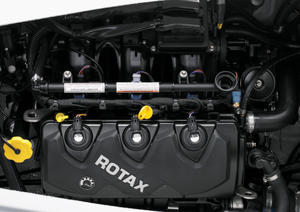 The 1,494cc Rotax engine produces a peppy 130 hp.
The 1,494cc Rotax engine produces a peppy 130 hp.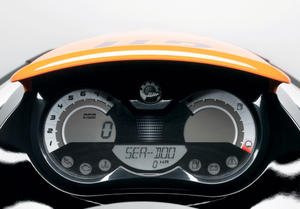 The GTI’s basic dash doesn’t include a speedometer.
The GTI’s basic dash doesn’t include a speedometer.The GTI falls squarely in the middle of its economy-priced competition in terms of horsepower, featuring a 130hp Rotax 1,494cc triple cylinder engine. By comparison, Yamaha’s VX is closer to 110; Kawasaki’s 15F about 160. Top speed averages out between 53-55 mph, and the craft reaches 30 mph in just under three seconds.
Basically a detuned version of the familiar Rotax 4-TEC, the engine has proven reliable over years of production. It features a single overhead cam, with four valves per cylinder. Though fuel consumption data is often disputed between the manufacturers, my own personal testing with verified fuel meters has shown the GTI to consume more fuel than the Yamaha VX or Kawasaki 15F.
Back To Basics
Entry-level craft are often thought of as “straight-to-rental” boats, and like others, Sea-Doo makes concessions in some areas to get to its lowest price point. The most notable example of cost cutting is that the craft features no speedometer, nor does it offer a standard boarding ladder or mirrors. All are available as options, as are more upscale upgrades like a retractable ski pylon and depthfinder, should you want to add them later. Storage includes a handy removable bin up front, but overall capacity is only 12.4 gallons. That’s the smallest in the entry category.
Beyond those items, however, the remaining basics are covered better than average. Reverse is standard, and Sea-Doo’s reverse lever is located to port, allowing a driver to control reverse and throttle when fine-tuning their movements around a dock or launch area. Sea-Doo also offers its anti-theft lanyard system to prevent theft; a second lanyard can be used to limit the boat’s speed for newcomers. A closed-loop cooling system relies on its own cooling water, rather than the riding environment, for essential cooling.
For off-throttle steering situations, Sea-Doo’s rudder system also offers an advantage over the competition in that it activates even if the engine has stalled or the driver pulled the lanyard. Manual rudders deploy downward in off-power situations, always providing directional control.
Critics might contend that the plain black hull/white deck combo for 2010 is cost cutting to the extreme, but I like it. It’s clean, and the simple graphics are modern and attractive. Sea-Doo’s nicely done cut-and-sew seat is a nice step above a simple single piece of vinyl, and its bolsters provide support and keep passengers in position atop the craft. A simple U-bolt ski tow eye is standard.
Value Minded
The GTI has never really won me over in the past simply because of the bargains you could find elsewhere. The 2010 model year, however, has seen the price of Kawasaki’s STX-15F increase to $8,999. Yamaha’s VX Sport, meanwhile, shares the GTI’s $7,999 price tag.
I think that’s enough reason to give the GTI a long, hard look before making a purchase. It’s got a fun hull design and decent power. Yes, it overlooks some simple basics, but it also includes others the competition doesn’t.
In other words, it’s certainly a value. You just need to decide if it’s your kind of value.
| Sea-Doo GTI 130 Specs | |
| Length | 127.0 inches |
| Beam | 49.0 inches |
| Dry Weight | 735 lbs |
| Engine | Rotax three-cylinder |
| Displacement | 1,494 cc |
| Bore and Stroke | 100mm x 63.4mm |
| Compression Ratio | 10.6:1 |
| Rated Horsepower | 130 |
| Fuel Capacity | 15.9 gal. |
| Combined Stowage Capacity | 12.4 gal. |
| Colors | Bright White |
| Price | $7,999 |
Related Reading
2010 Sea-Doo Lineup Preview
2009 Sea-Doo GTI SE 130/155 Review
2010 Kawasaki Jet Ski STX-15F Review
All Things Sea-Doo on PersonalWatercraft.com
Get PersonalWatercraft.com in your Inbox!
Like PersonalWatercraft.com on Facebook
Comments
Most Popular
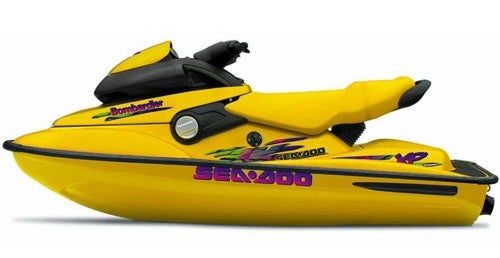
Remembering the Sea-Doo XP
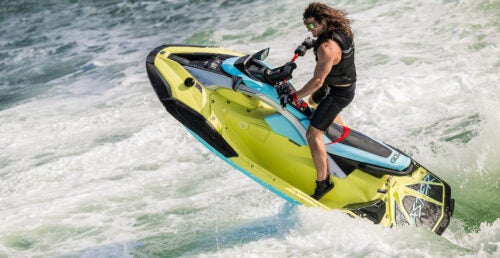
2025 Yamaha JetBlaster PRO 2-Up Review

2024 Yamaha GP HO Review

2024 Kawasaki Jet Ski STX 160X Review

2008 Kawasaki Jet Ski Ultra 250X Review
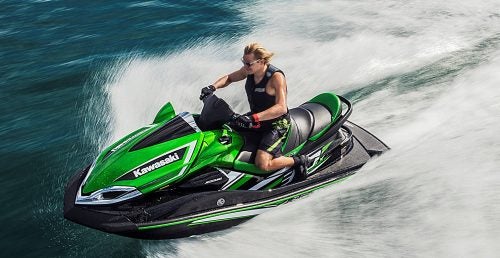
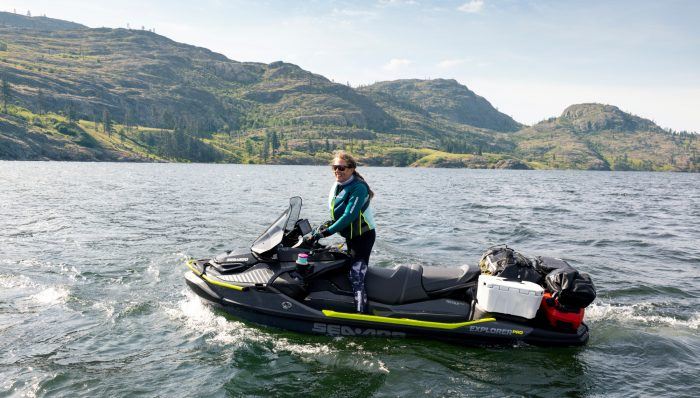


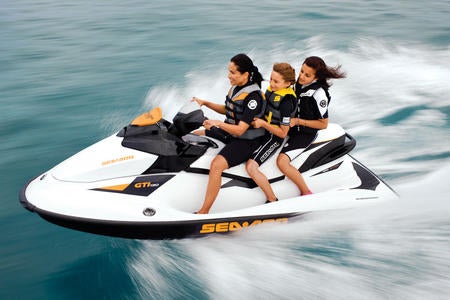
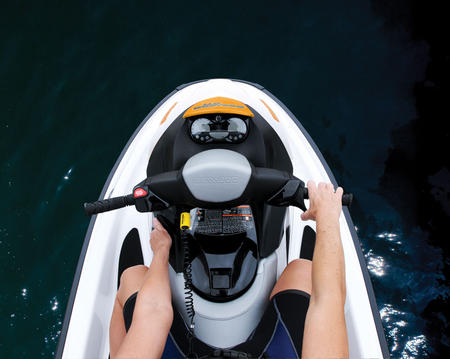




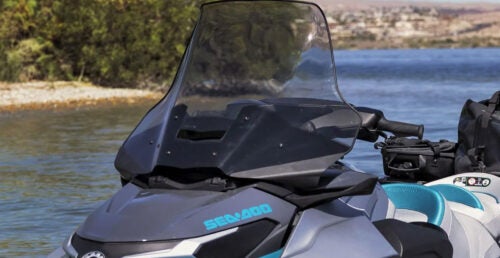



 Your Privacy Choices
Your Privacy Choices